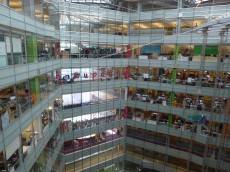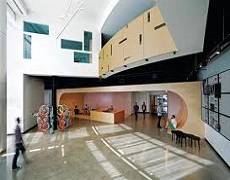December 2, 2013
Mid-sized firms are unsung champions of the economic recovery says CBI
 Medium-sized businesses (MSBs) are making a significant contribution to jobs and growth across the UK. Between March 2010 and March 2013 they have created 185,000 jobs, a 4.1 per cent increase compared with 1.9 per cent by large companies and 2.8 per cent by small firms. New CBI research published today shows that despite only accounting for 1.8 per cent of the UK private sector, MSBs, which employ between 50-499 people and have a turnover of £10-100 million, now employ 4.7 million people across the UK – 16 per cent of the total UK workforce. The CBI has launched #MSBMonday to boost recognition for MSBs and is calling on local government and policy makers to do more to recognise and support medium-sized businesses as their local champions. More →
Medium-sized businesses (MSBs) are making a significant contribution to jobs and growth across the UK. Between March 2010 and March 2013 they have created 185,000 jobs, a 4.1 per cent increase compared with 1.9 per cent by large companies and 2.8 per cent by small firms. New CBI research published today shows that despite only accounting for 1.8 per cent of the UK private sector, MSBs, which employ between 50-499 people and have a turnover of £10-100 million, now employ 4.7 million people across the UK – 16 per cent of the total UK workforce. The CBI has launched #MSBMonday to boost recognition for MSBs and is calling on local government and policy makers to do more to recognise and support medium-sized businesses as their local champions. More →

























November 29, 2013
The meaningful aspects of what we do give us the greatest rewards
by Annie Gurton • Comment, Workplace
Charles Handy recently explained to attendees at Worktech 13 London why money is not the main motivating factor for employees; while at the same event, Claudia Hamm-Barstow of Jones Lang LaSalle added that the dream workplace is “a place where the company adds value to the employee experience, people feel valued and welcomed, the organisation feels meaningful, the work is rewarding and importantly there are no stupid rules”. According to The Human Givens Institute neither of these statements should be at all surprising. But The Human Givens theory adds that we also need to be respected, to feel in control, to have self-esteem, privacy and community. And, most crucially of all, we need to have purpose and meaning in our lives. More →